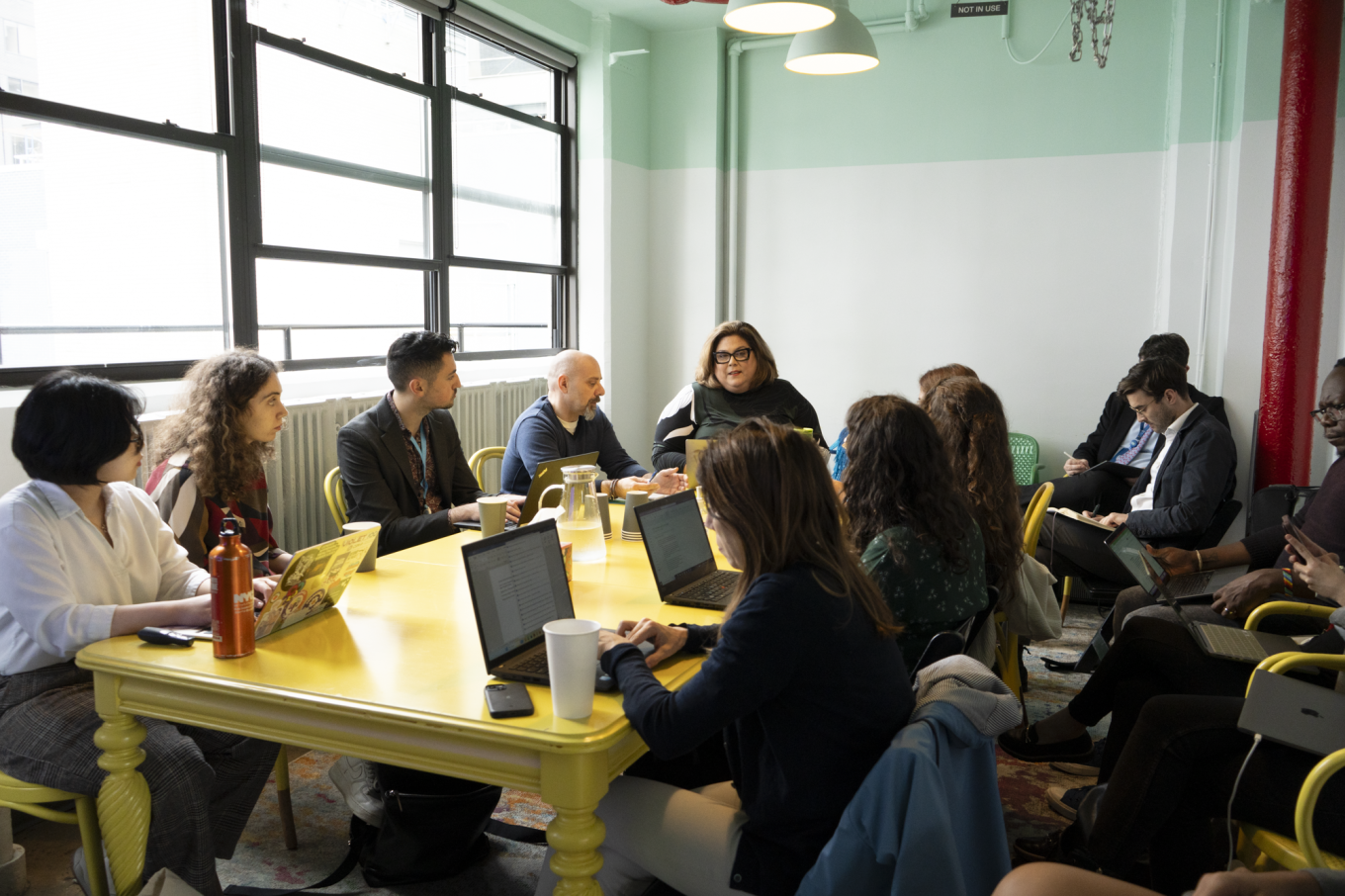
Insights
Understanding Intersex Rights: A Call for Awareness and Advocacy
Region(s)
TOPIC(s)
Type
Commentary
Author(s)
Publish Date
May 24, 2024
Share
“The I in LGBTIQ does not stand for invisible,” my colleague and Senior Advisor for Global Intersex Rights at Outright International, Kimberly Zieselman, said to me during a recent exchange. Kimberly’s assertion came from a place of frustration with a New York Times opinion piece that lacked depth and presented an oversimplified view of the lived experience of intersex people. The Intersex Roundtable Discussion hosted by Outright International during the annual Advocacy Week made me wish we had an audience present and or even a recording to serve as a resource for journalists to use. Perhaps then it would finally sink in that intersex individuals are a diverse group of people whose biological sex characteristics do not fit typical notions of male or female.
One of the key issues highlighted during the discussion, which included intersex people and activists from Serbia and the Philippines, was the prevalence of harmful practices, including hormone therapies and surgeries, including irreversible genital surgeries, inflicted on intersex infants and children around the world. They are performed without the child's consent and can lead to severe physical and psychological trauma. Those in attendance emphasized the intersectionality of intersex rights with children’s rights, women's rights, and disability rights, calling for a multifaceted approach to address these issues.
The discussion also brought to light the need for legal and non-legislative interventions to protect intersex people’s rights. Recommendations included amending existing laws or drafting new bills to combat nonconsensual surgeries on intersex infants and children, as well as the importance of mobilizing support networks within the intersex community.

For the longest time, trans people came to mind every time I thought about legal gender recognition, and most reading material I accessed focused solely on trans individuals. However, I made sure to bring up that misconception during the discussion, which put a spotlight on the importance of legal gender recognition for some intersex individuals.
We heard about the challenges intersex people have in obtaining legal recognition. One example mentioned was the pending Cagandahan bill in the Philippines, which seeks to facilitate administrative gender changes for intersex individuals. The pervasive cultural and societal shame associated with intersex variations often leads to employment discrimination and bullying.
While acknowledging the ongoing challenges, those in attendance also shed light on the progress made in various parts of the world. Several European countries have taken steps to ban unnecessary surgeries on intersex children, and Spain notably banned such procedures in 2023. Additionally, regional advocacy organizing efforts such as Intersex Asia and the African Intersex Movement provide spaces for intersex individuals to find community and empowerment, signaling a growing shift in intersex activism.
The United Nations Human Rights Council (UNHRC) in Geneva recently provided a milestone moment for the global intersex movement by passing the first intersex resolution. This resolution helped raise the platform for intersex activism and garner the attention it deserves.
The Intersex Roundtable Discussion provided a crucial platform to shed light on the challenges intersex individuals encounter and the urgent need for advocacy, awareness, and legal protections. Harmful practices, discrimination, and lack of legal recognition continue to impact intersex individuals globally. However, the progress made so far in various regions and the growing activism within the intersex community present a shift towards greater awareness and support.
As I reflect on the insights shared during the discussion, it becomes clear that there is a pressing need for continued advocacy, policy changes, and public awareness campaigns to protect the rights of intersex individuals. Amplifying the voices of intersex activists, challenging harmful practices, and advocating for legal recognition can open ways to work toward inclusivity and equity for all individuals, regardless of their sex characteristics. Additionally, it is vitally important to address the intersectional nature of intersex rights, recognizing the connections to women's rights, children's rights, and broader issues of discrimination and social stigma.
Journalists are pivotal in shaping public perceptions and understanding of intersex issues. They must report thoughtfully on intersex stories, ensuring their writing is sensitive, accurate, and inclusive. Sensitively reported stories can challenge stigma, promote empathy, and foster meaningful dialogue. Therefore, I urge journalists to engage with intersex communities, elevate intersex voices, and report on intersex issues with the nuance and respect they deserve.

Take Action
When you support our research, you support a growing global movement and celebrate LGBTIQ lives everywhere.
Donate Now